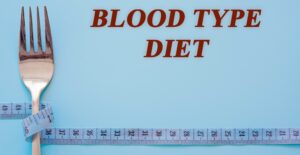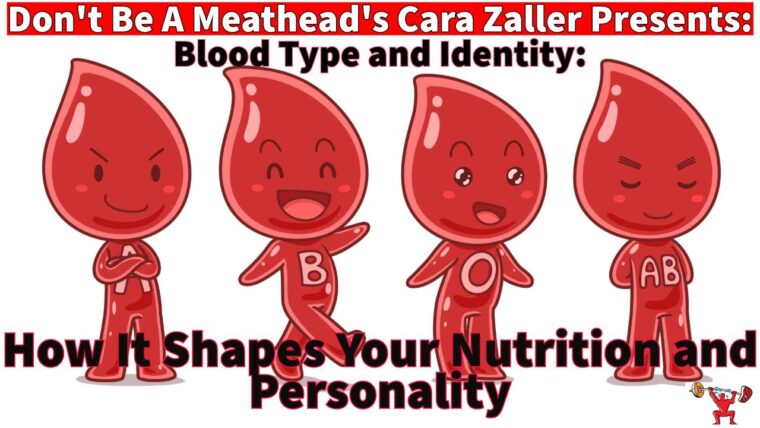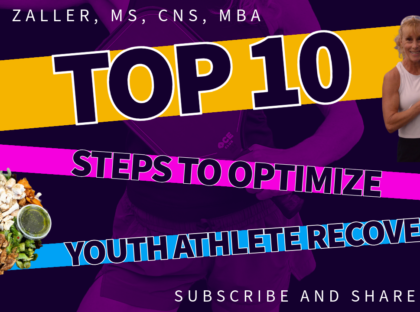There are four primary types of blood: A, B, AB, and O. The presence of specific antigens on the surface of the red blood cells determine which of the four you are. Each blood type not only influences compatibility for blood transfusions but also appears to play a crucial role in your individual health, metabolism, and dietary needs.

Your blood type tells a lot about your nutritional needs and personality traits.
Below, I have compiled a list of the characteristics of each blood type in addition to dietary and exercise recommendations that may enhance your health and well-being. It is important to know your blood type. If you do not know your blood type, it’s a great idea to get it checked. With this information, you can direct your nutrition to help your overall health and fitness. Some are even starting to make a direction correlation between blood type and personality traits. Please tell us your blood type below (anonymously is fine) and your personality traits. Let’s see if they jive!
BLOOD TYPE A
Characteristics:
Individuals with blood type A typically exhibit a more sensitive immune response. They are often characterized by their empathetic nature and preference for social interactions. Furthermore, they tend to have a lower tolerance for stress and may experience anxiety more acutely than individuals with other blood types.
Susceptibility:
Individuals with type A blood are more prone to infections caused by Helicobacter pylori, which is linked to stomach ulcers and gastric cancer. This vulnerability is attributed to lower stomach acid levels in these individuals, creating an environment conducive to bacterial growth. Studies suggest that type A blood may be associated with a higher risk of gastric cancer due to these infections.
Exercise Recommendations:
1. Yoga and Pilates: These practices can enhance flexibility, balance, and mental well-being. They are particularly beneficial for reducing stress and promoting mindfulness.
2. Moderate Aerobic Exercise: Activities such as brisk walking, cycling, or swimming at a moderate pace can support cardiovascular health without overwhelming the system. Aim for at least 150 minutes of moderate exercise weekly.
3. Strength Training: Incorporating low to moderate resistance training can help maintain muscle mass and support joint health. Focus on bodyweight exercises or lighter weights with higher repetitions.
4. Mind-Body Practices: Activities that combine movement with mental focus, such as tai chi or qigong, may resonate well with Type A individuals, promoting relaxation and overall wellbeing.
Dietary Recommendations:
Blood type A individuals are believed to thrive on a primarily vegetarian diet. This blood type is thought to have evolved during the agricultural era, favoring foods that are rich in plant-based nutrients; however, certain animal proteins can be included in moderation, especially for those who are physically active. Leafy greens, berries, root vegetables, broccoli, carrots, quinoa, oats, beans, lentils and nuts are all beneficial to those with Type A.
BLOOD TYPE B
Characteristics:
Blood type B individuals often exhibit a balanced personality, characterized by adaptability and flexibility. They tend to be more tolerant of stress and possess a strong immune system. However, they may be prone to certain autoimmune conditions due to their unique physiological makeup.
Susceptibility:
Type B individuals may have a higher risk of developing autoimmune diseases, such as lupus and RA. Their immune systems may react more aggressively to perceived threats, which can lead to autoimmune responses.
Exercise Recommendations:
Those with blood B are known as the “The Nomads”. These people are adaptable and spontaneous. They tend to respond well to varied exercise routines that keep them engaged and mentally stimulated.
1. Diverse Workouts: Engaging in a mix of activities, from cardio to strength training, can keep Type B individuals motivated. A good form of exercise for these individuals is cross-training,
2. Outdoor Activities: Hiking, biking, or playing recreational sports can fulfill the need for variety and exploration. Nature-based workouts may also enhance mental clarity and reduce stress.
3. Flexibility and Balance Training: Incorporating activities that enhance flexibility, such as yoga or dance, can help prevent injuries and improve overall performance.
4. Social Exercise: Group classes or team sports can provide the social interaction that Type B individuals thrive on, creating an enjoyable and motivating environment.
Dietary Recommendations:
Individuals with blood type B tend to thrive on a more diverse diet, allowing for a wider range of animal proteins and plant-based whole foods. These individuals do best with proteins such as lamb, venison, cod, salmon, mackerel, eggs, and dairy. These people are more tolerant of dairy and other foods versus others. Leafy greens, carrots, and sweet potatoes are excellent choices, providing essential vitamins and minerals. Type B individuals can handle a moderate amount of whole grains, such as rice and oats, but they should avoid wheat, which may cause them digestive issues. Unlike Type A, Type B individuals should limit chicken, which may promotes inflammation for this blood type. Type B’s should also avoid corn and peanuts as these can lead to adverse reactions.
BLOOD TYPE AB
Characteristics:
AB blood type is the rarest one. These people exhibit traits of both personality types, demonstrating a complex emotional landscape and a capacity for deep thinking. Their immune systems are generally strong, but they may face challenges related to stress and emotional health.
Susceptibility:
Individuals with Type AB blood are more prone to gastric cancer and may even have a higher rate of pancreatic cancer. These numbers are compared to O type blood.
Exercise Recommendations:
The most recent type of blood type is AB. They are “The Enigmas”. These people are complex and versatile. They may benefit from a balanced and adaptable exercise approach.
1. Combination Workouts: A blend of aerobic exercises, strength training, and flexibility routines can cater to the diverse needs of Type AB individuals. This may include circuit training that incorporates various modalities.
2. Mindfulness Practices: Incorporating stress-relief techniques such as meditation or yoga can help maintain emotional balance and promote mental clarity.
3. Moderate Intensity: Type AB individuals may find moderate-intensity workouts beneficial, allowing them to engage in varied exercises without overexertion.
4. Team and Individual Sports: Participating in both solo activities like running or cycling, as well as team-based sports, can offer the best of both worlds, competition and personal challenge.
Dietary Recommendations:
Type AB individuals appear to be able to handle a good variety of food types. Whereas they can consume a good amount of protein, they also do well with lots of vegetables. Most seafood is good for these individuals, although there is sometimes a concern for salmon, certain beans, and other foods, such as corn.
BLOOD TYPE O
Characteristics:
Blood type O individuals tend to have a robust digestive system. As such, they do well with a high-protein diet rich in animal products.
Susceptibility:
Type O individuals are often less susceptible to heart disease but may be more vulnerable to peptic ulcers. They have a reduced risk of pancreatic cancer but do tend to have more issues with bleeding whereas other blood types tend to have issues with clotting. Their blood type is less compatible with certain infections, making them more resilient in some areas while still facing risks.
Exercise Recommendations:
Type O blood individuals (“The Hunters”) are energetic and competitive. They do well with on high-intensity workouts that mirror the active lifestyles of their ancestral hunter-gatherers. Consider these 4 components of an exercise routine for Type O blood individuals:
1. Competitive Workouts: Jogging burns a lot of calories and clears the mind. The sensation of a “runner’s high” is also due to an endocannabinoid kick, or a stimulation of the brain to give us a feeling of euphoria as we are exercising. Type O blood individuals have no issue with running activities. They also excel with activities such as cycling, especially at the higher heart rate intensities. As far working out in the gym goes, yes, Type O enjoy the challenge of training.
2. Mindfulness Practices: As intense as Type O individuals are with their activity load, they do need some downtime and recovery strategies. Type O individuals excel with yoga, active recovery techniques, and even just walking or hiking.
3. Sports Preferences: Type O individuals excel with competitive and high intensity activity, and it’s also been shown that they can perform well with both individual and team sports.
4. High Intensity: Type O individuals love high intensity activities. As mentioned above in the workout section, intensity drives Type O people. Type O individuals enjoy not only the individual challenges of sport, but also have no issues with recreational activities.
Dietary Recommendations:
Blood type O individuals tend to have a robust digestive system. As such, they do well with a high-protein diet rich in animal products.
Type O individuals thrive on a high-protein diet, favoring meats while avoiding grains and legumes which can lead to digestive discomfort. Recommended foods include beef, bison, venison, lamb, and poultry, fatty fish such as salmon and sardines and eggs. These people can eat most vegetables. The best vegetables are the ones that are low in starch, such as leafy green and cruciferous vegetables. Type O’s should avoid grains (especially wheat), dairy (due to potential intolerances) and legumes which may hinder optimal digestion and overall health.
Concluding Thoughts:
So there you have it! Our 4 types of blood types and what goes along with them on several topics. There also appears to be personality traits associated with the blood types, but it’s going to take some research to lock in this ideology. As was stated in the beginning of this blog, please feel free to post your blood type (anonymously, if you’d like) along with your personality types.
Is there a correlation between Type A and Type B personality traits and blood types? Sources may say NO at this time but there’s really no research in this area. What about Type O? Where do they stand with personality? Let’s take a look at what everyone writes in and try to figure some things out!
Thank you!
Don’t Be a Meathead is protected by Copyright laws. If you wish to post any content from www.dontbeameathead.com, you must obtain express (written…this can be email) permission before doing so. We love sharing important information to help people and we do appreciate your respect for our intellectual property.




